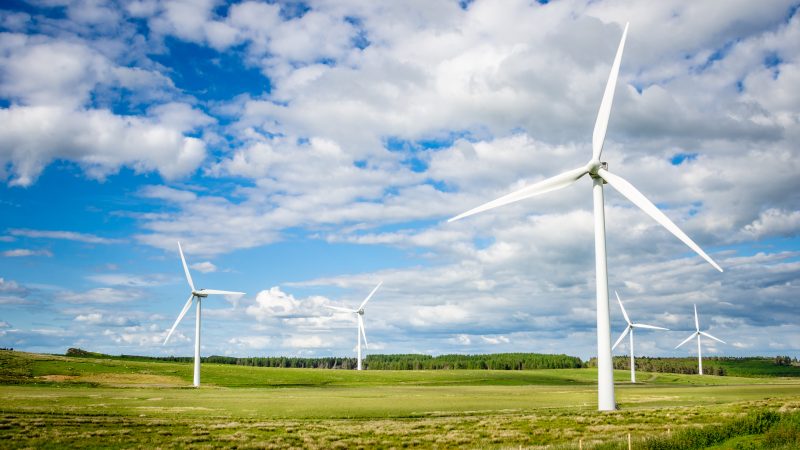
Whilst the dust settles on the by-election results in Selby and Ainsty, Somerton and Frome and Uxbridge and South Ruislip, there is one lingering question: did the ultra-low emission zone (ULEZ) save Boris Johnson’s old seat for the Conservatives? And more importantly, does Labour need to jettison bold action on net zero and clean air amidst a cost-of-living crisis?
It is easy to overanalyse one by-election result, but it’s important we don’t draw the wrong conclusion. Communities in Uxbridge haven’t rejected net zero. However, their concerns will cast a long shadow in Labour circles.
Sceptics will feel emboldened, but evidence suggests that once local climate and clean air schemes are in place, if they are done well, they are accepted. As with ULEZ expansion, the most dangerous times for these kinds of interventions are in the lead-up to the project and immediately after it starts.
ULEZ’s fate will be decided at the London mayoral election in May next year, and Conservative opposition to the scheme will be the focus for the party’s newly-selected candidate. The Uxbridge result should serve as a wake-up call for progressive politicians, members and campaign groups supportive of climate action.
The risk of opposition parties jumping on populist movements and effectively weaponising local issues is here to stay. And it doesn’t always have to be electorally effective to diminish political resolve.
Is net zero the battleground issue that will win or lose marginals across the country? Maybe not. But a knee-jerk retreat does risk losing thousands of votes in the seats Labour needs to win at the next general election.
Labour can capitalise on Sunak’s lukewarm approach to net zero
With Rishi Sunak on course for failure when it comes to meeting the UK’s legal-binding climate targets – introduced by a Labour government 15 years ago this year – Labour has an opportunity to exploit the issue and capitalise on the Prime Minister’s lukewarm embrace of net zero. On fiscal and economic grounds if nothing else.
For proof of concept, we only have to look to our Australian friends in the Labor Party who, with the help of the centre-right Liberal Party break-aways, the ‘teal’ independents, caused a political earthquake in reclaiming power in no small part due to the fact the incumbent government had slid into net zero scepticism. In the UK, centre-right pollsters and think tanks urging the Conservatives to avoid a similar descent found “there is, in fact, no part of the electorate that net zero scepticism plays well with”.
Much like former Prime Minister Boris Johnson’s failure to deliver on ‘levelling up’ has gifted Labour the space to champion a “take back control bill” to empower local communities and decentralise power, Sunak’s slow retreat from net zero leadership has given them an opportunity to take up that mantle.
The economic case for climate action has never been stronger
Addressing climate change and advancing social justice underpins every one of Labour’s missions for government. Let’s take the first mission, securing the highest growth in the G7. If we’re to achieve this, we’ll need to carve out a competitive edge in the two big economic engines of growth and private investment: decarbonisation and the drive towards automation and artificial intelligence.
Europe, the United States and China are competing to outdo each other in exploiting the economic opportunities decarbonisation offers. These economic superpowers are investing trillions of dollars in vying for the global top spot. They are not doing this just for the social good (wouldn’t that be nice!) but for the economic advantage and world-leading status.
The competition will inevitably drive down the cost of technological solutions, improve supply chains and speed up delivery. The global green race to the top is a good thing, but Britain can’t afford to be a spectator on the sidelines. Sure, we might benefit from the cheaper consumer solutions but, as a nation, we won’t have developed the tech, own the patents, have assembled the products or be a base for the companies who take the profit (and pay the taxes!).
In a competitive global economy, Britain needs to urgently define its place. And the need is stark. The Office for Budget Responsibility just warned that the cost of not zero would be double that of meeting our net zero commitments. The financial case for action has never been stronger.
Devolution and net zero go hand in hand
If net zero broadly sits in the political and economic centre, then how should it be delivered? The climate change committee set up on the back of Labour’s Climate Change Act 2008 has repeatedly emphasised the importance of local action on net zero, much like the net zero review from the government’s own climate tsar Chris Skidmore MP.
Local authorities in the UK have influence over more than 80% of greenhouse gas emissions, and PricewaterhouseCoopers has calculated that for every £1 spent on local climate action, around £14 of wider social benefits are delivered.
As UK100’s Powers in Place report highlights, Labour councils nationwide have been pioneering net zero initiatives, demonstrating that climate action is not only possible, but it’s happening right now at the local level. Devolution and net zero go hand in hand.
The path to achieving net zero is not going to be easy. Labour needs to hold its nerve after Uxbridge and reject the climate change narratives set by the sceptics and radicals. Instead, the party should be confident in the national vision it has set out, one that recognises general climate action enjoys widespread support, and trust in the potential of local authorities to lead the charge.




More from LabourList
Letters to the Editor – week ending 1 March 2026
‘I spent years telling workers the law couldn’t help them – that has changed’
Josh Simons resigns as Cabinet Office minister amid investigation